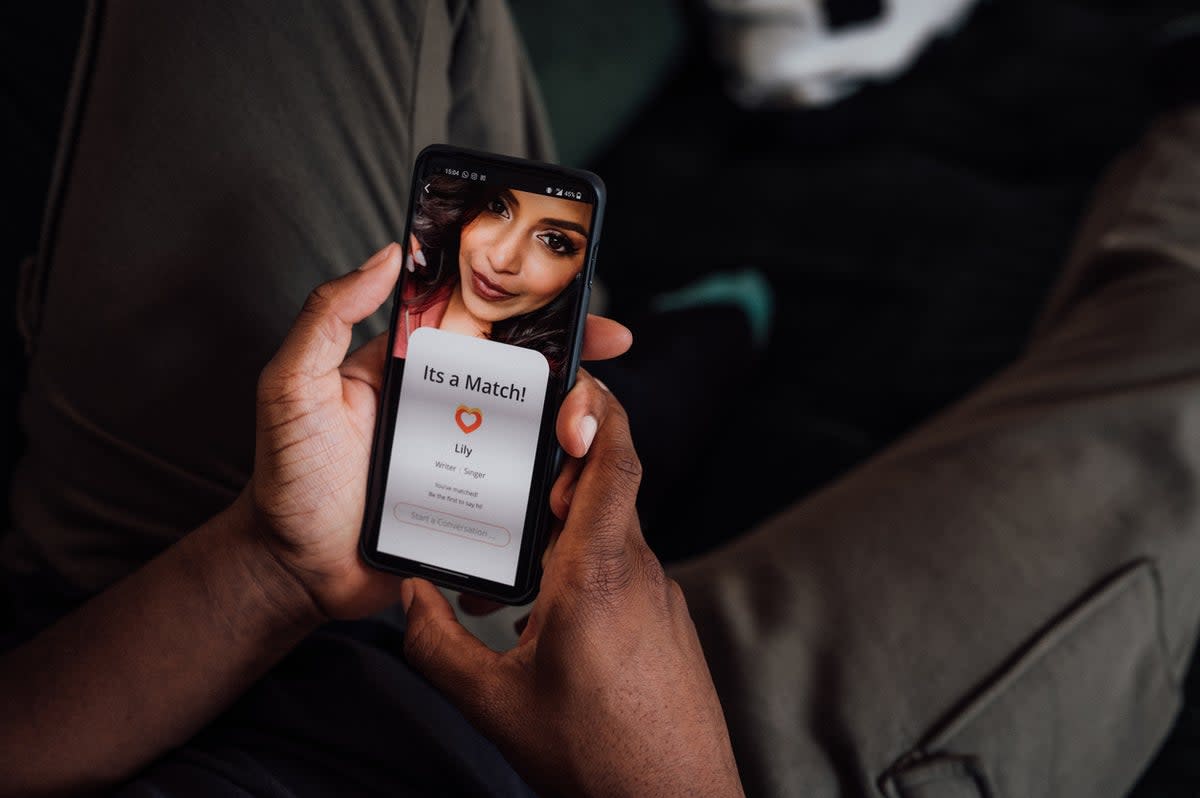Voices: The new dating app feature that might just save women’s lives

It starts the second a friend tells me she’s going on a date. “How much do you know about him?” “Where are you meeting?” “Can you tell me when you get home?” And so on.
This set of questions forms part of a well-oiled routine that is regularly performed among single straight women. The reasons for this are obvious – at least they are to us – but for those privileged enough to be none the wiser, allow me to explain.
Few have summed up the core dilemma at the heart of gender politics that this issue magnifies better than Margaret Atwood: “Men are afraid that women will laugh at them. Women are afraid that men will kill them.”
To some men, this may sound melodramatic; I imagine the bit about being afraid that women won’t find them funny may also bruise their ego. But for women, the fears for our safety every time we go on a date loom larger than you might think.
So deeply embedded into the modern dating experience has this become that, when describing “types”, it’s not uncommon to hear women say something along the lines of “tall, dark, handsome – and not a serial killer”. I said it to a friend last week.
Hence why I was delighted when, earlier this week, Tinder announced a new “share my date” feature that will enable users to share their date plans with friends and loved ones straight from the app. This includes the location of the date, the time and a photo of the match.
The initiative followed polling data which found that more than half of singles (51 per cent) under 30 already let their friends know the details of their dates, and one in five Tinder users (18 per cent) share their date plans with their mum.
This might make the new feature sound redundant; after all, if people are already doing this, why does Tinder need to incorporate it into the app?
Well, the quick answer is: it doesn’t. But in doing so, it will not only encourage people to share this information with their friends, which is ultimately beneficial to everyone from a safety perspective – but it might also raise awareness of the fear and “safety checklist” women like me go through every single time we date.
Men on the apps need to know that this is something many, many women feel compelled to do every time they agree to a first date. They need to understand why we’re so worried. They need to know that we’re not very likely to accept a “home-cooked meal” until we’ve at least met all your friends and got a reference from your boss, sorry.
And men need to do what they can to help us feel safer – such as simply meeting us somewhere neutral, and busy, and brightly lit. I’ve even heard of people only choosing to date with their friends in tow, which seems like a pretty good idea to me.
Not enough people seem to be aware of the risks – in fact, unthinkably, I was recently told by someone I went on a date with that “men and women are just as bad as each other”. Statistically, this is simply not true, at least not when it comes to violence.
Consider the fact that a woman is killed by a man every three days in the UK. In domestic abuse cases, 93 per cent of defendants in domestic abuse cases are male; 84 per cent of victims are female and 91 per cent of people prosecuted for sexual offences are men aged 18 or over.
So no, we’re not “just as bad as each other” at all, actually. If you still don’t believe me, though, consider some recent headlines where women have literally been killed by men they’ve gone on first dates with.
In 2020 it was 21-year-old Grace Millane, who was strangled to death in an Auckland hotel room following a Tinder date.
In 2022, it was Blanca Arellano. The 51-year-old had travelled from Mexico to Peru to meet a man she’d been chatting to online. Two weeks later, parts of her body were recovered on a beach.
Earlier this month, it was Sade Robinson, a 19-year-old college student who told friends she was “excited” about meeting a 33-year-old man for dinner one evening. Part of her dismembered body was found on a beach a day later.
None of these measures can take away the harm that has been done – and is still done – to women on an almost daily basis. But I am pleased dating apps are finally waking up to how women really feel – and are imposing measures to safeguard us from harm. It’s so much more important than most of us realise. It might even save our lives.


